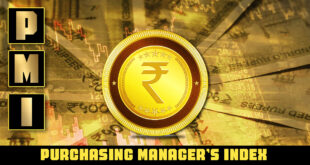⦁ Online payment aggregators can onboard digital merchants and accept payments on their behalf after getting a licence from the RBI.
⦁ The central bank introduced a framework for such entities in March 2020.
⦁ The RBI has for the first time released a full list of the entities to which it has granted a payment aggregator licence, as well as those whose applications are still in process, and those whose applications it has rejected.
⦁ The payments arm of big technology companies Amazon and Google are among 32 firms that have been given in-principle approval by the Reserve Bank of India (RBI) to operate as online payment aggregators.
⦁ Approvals have also been granted to Reliance Payment Solutions, a part of Reliance Jio Infocomm, and the payments platform of food delivery firm Zomato.
⦁ The RBI has for the first time released a full list of the entities to which it has granted a payment aggregator licence, as well as those whose applications are still in process, and those whose applications it has rejected.
⦁ The central bank has said that the scrutiny of applications of payment aggregators is an “ongoing process”, but it is releasing the status until February 15 for “ensuring greater transparency”.
⦁ The list will be updated fortnightly, it said.
Payment aggregators
⦁ Online payment aggregators can onboard digital merchants and accept payments on their behalf after getting a licence from the RBI.
⦁ The central bank introduced a framework for such entities in March 2020.
⦁ Applications were invited until last September. Under the payment aggregator framework, only firms approved by the RBI can acquire and offer payment services to merchants, which brings them under the direct purview of the regulator.
⦁ According to RBI rules, a company applying for aggregator authorisation must have a minimum net worth of Rs 15 crore in the first year of application, and at least Rs 25 crore by the second year.
⦁ It also must fulfil the “fit and proper” criteria, and be compliant with global payment security standards.
Entities that are yet to receive RBI’s approval
⦁ Among the applications for payment aggregators that remain under consideration are those of prominent Indian start-ups such as PhonePe and Dreamplug Paytech Solutions, the parent company of Cred.
⦁ The applications of Paytm and PayU have been returned.
⦁ This means these companies can continue to function as payment aggregators, but they cannot take on board new merchants until they receive RBI’s approval.
⦁ The applications of Ola Financial Services and CAMS Payment Services among others have been rejected. These companies cannot function as payment aggregators.
Other actions RBI taking to regulate fintech firms
⦁ The RBI has prepared a “white-list”(allow or accept list) of digital lending apps in the country, which it might soon release.
⦁ In order to curb rising malpractices in the digital lending ecosystem, the RBI last August issued guidelines for entities engaged in digital lending that stated that all digital loans must be disbursed and repaid through bank accounts of regulated entities only, without the pass-through of lending service providers (LSPs) or other third parties.
⦁ Earlier this month, the Ministry of Electronics and IT (MeitY) banned 94 digital lending apps, including Indian startups such as LazyPay and Kissht. However, the ban on some of these entities was later revoked.
SOURCE: THE HINDU, THE ECONOMIC TIMES, PIB
 Chinmaya IAS Academy – Current Affairs Chinmaya IAS Academy – Current Affairs
Chinmaya IAS Academy – Current Affairs Chinmaya IAS Academy – Current Affairs



